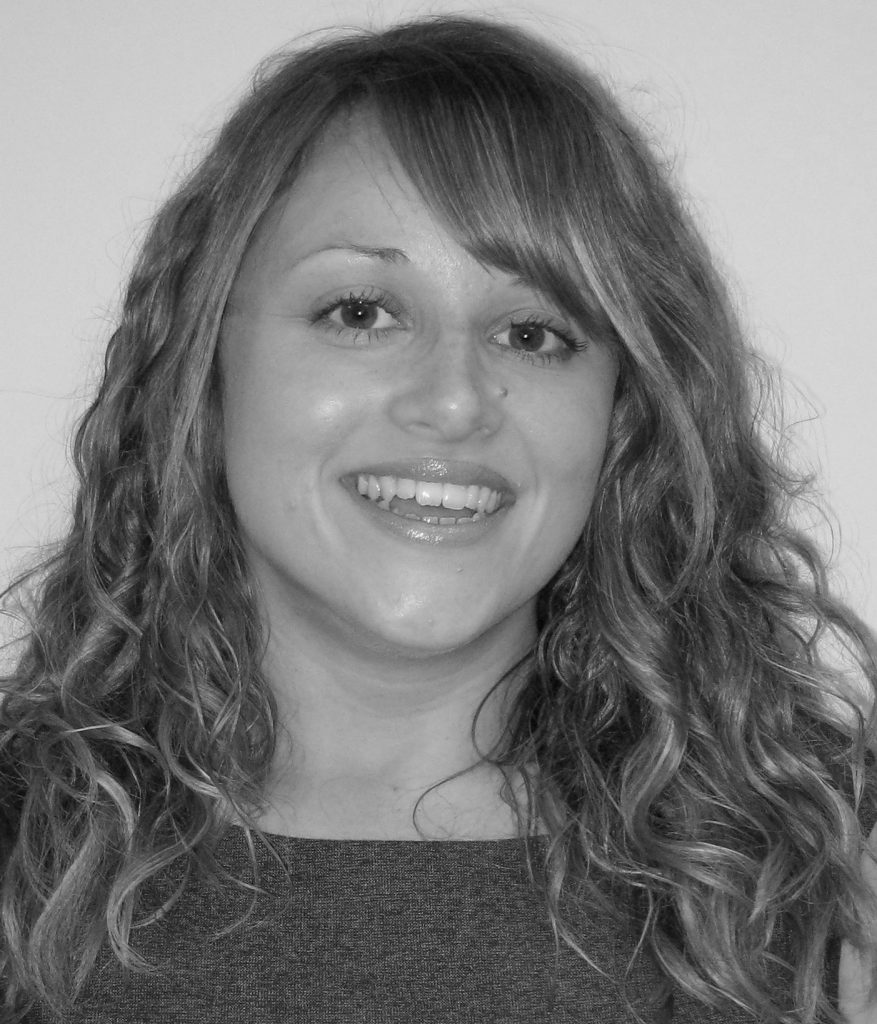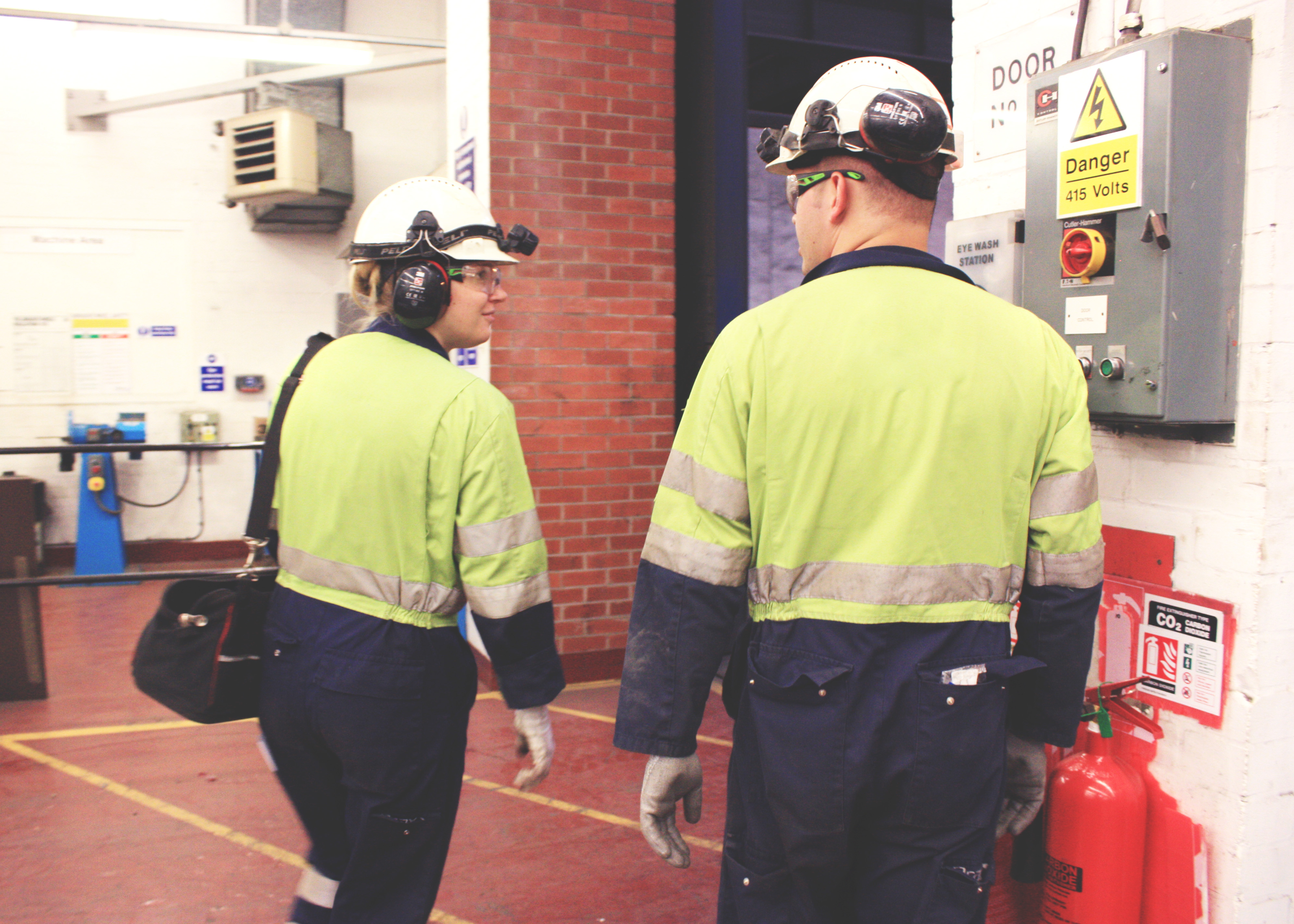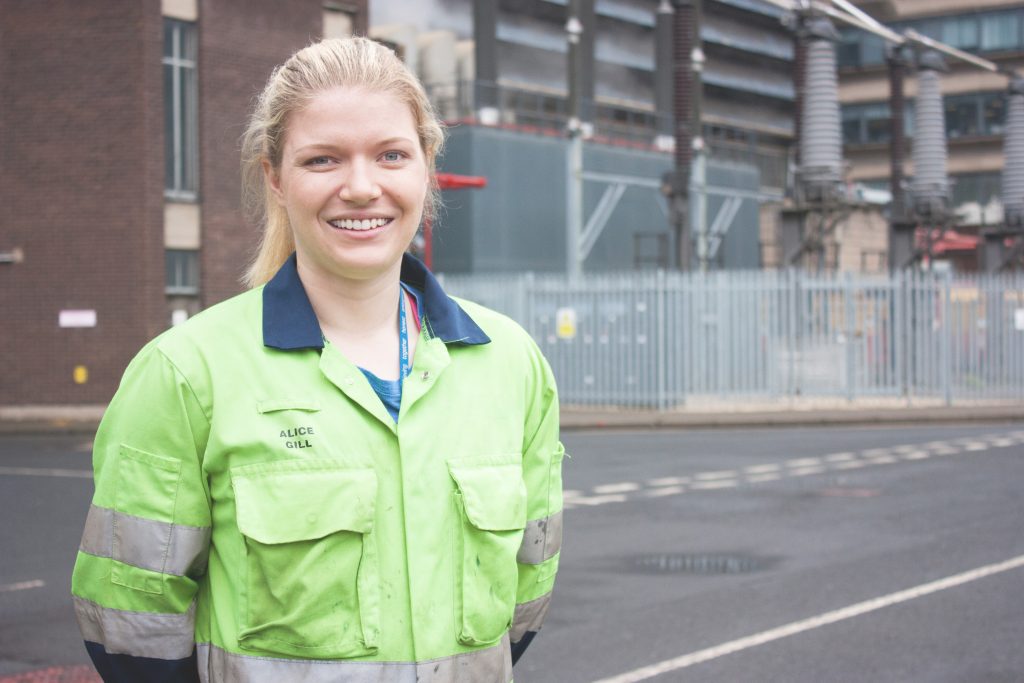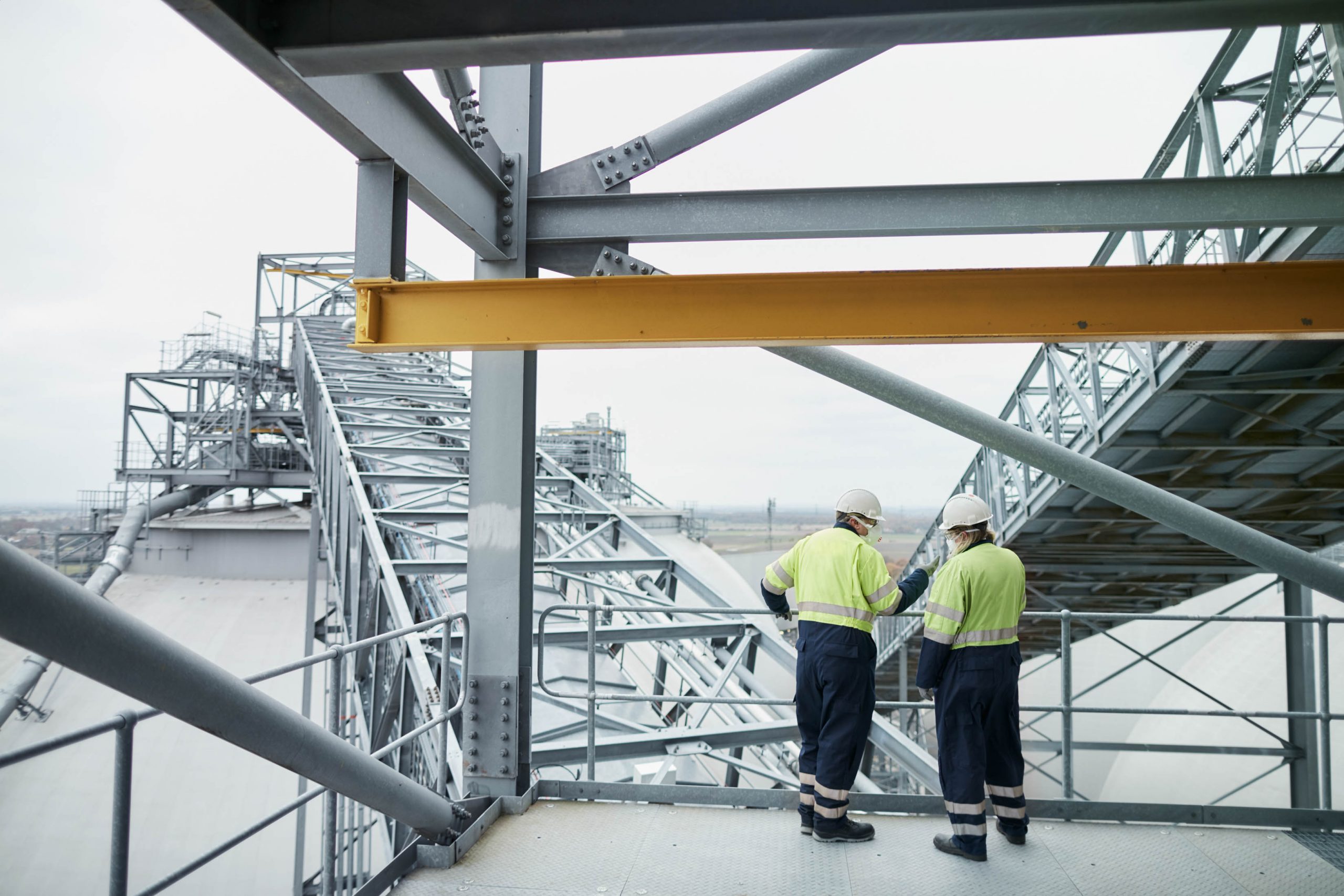
In brief
-
Apprenticeships are widely available at Drax, not just in engineering
-
Hear what our existing apprentices think about the opportunities they’ve taken
-
Discover where to find out more: could you be the next Drax apprentice?
Apprenticeships are changing – once mainly the domain of school leavers entering a trade, they are now a possibility for people at many different career stages, in countless industries.
At Drax, we offer a wide range of apprenticeships across a variety of business areas, from engineering to data science. The scheme covers costs to individuals without affecting employee salaries or benefits, whilst providing sufficient support and protected study time.
“Take the opportunity! We’re very lucky to have the chance to complete apprenticeships while working.”
— Beka Mantle, apprentice
By undertaking the apprenticeship, people can learn a new set of skills to improve their knowledge and expertise, boost their career opportunities and gain invaluable experience.
What is an apprenticeship?
An apprenticeship is made up of learning with a training provider and practical experience on the job.
Apprenticeships can benefit Drax by attracting new talent while also developing existing colleagues and future-proofing our workforce to help achieve our ambition to become carbon negative by 2030.
Apprentice Q&A
The following insights from Drax employees highlight the opportunities that apprenticeships can give them and what they have learnt so far.
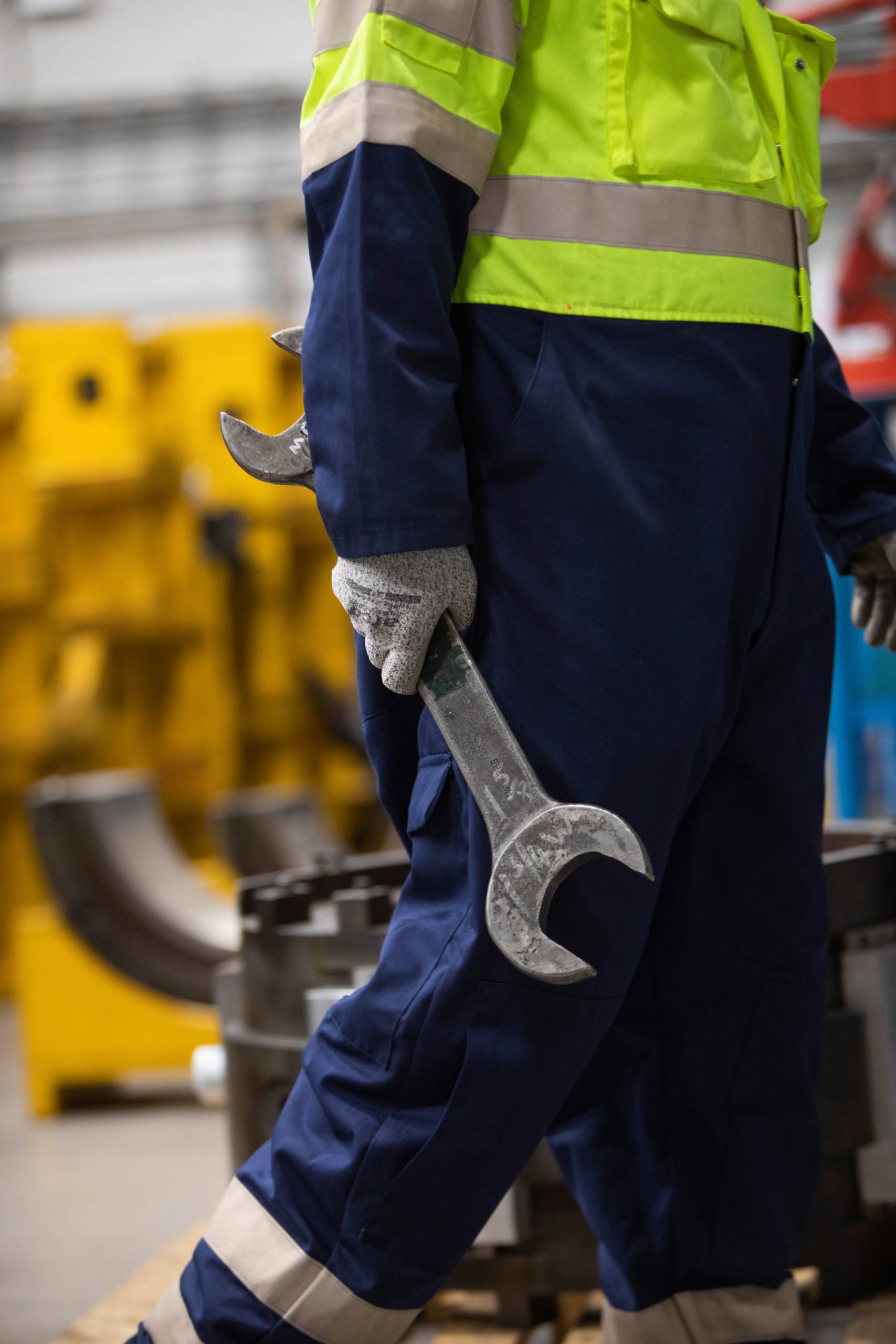
Joe Clements
Job title: Technical Engineering Trainee
Apprenticeship: Mechanical Engineering Pathway Continuation
Q: What are the benefits of an apprenticeship?
A: It’s put me in positions that I might not have found myself in before, forcing me to learn fast and adapt. It’s also benefiting Drax as I’m constantly learning and developing within my team. On completion, I should be ready to go straight into an engineering role.
Q: What are the challenges?
A: Balancing your work and study, especially as you grow into the role and take on more tasks. However, you’re guaranteed learning hours on a weekly basis.
Lois Cheatle
Job title: Finance Graduate
Apprenticeship: Accountancy and Taxation
Q: Why did you want to do an apprenticeship?
A: Having graduated from university and taken a year out, I wanted to further improve on the skills I’d learnt. An apprenticeship has allowed me to develop these skills both from learning on the job and having technical support from my training provider as I worked my way through my accountancy qualification.
It’s also given me the opportunity to develop soft skills such as communication and building relationships, which is part of the professional development side of the apprenticeship.
Alex Hegarty
Job title: Data Science Analyst
Apprenticeship: Data Science
Q: How was your apprenticeship application process?
A: It was fairly straightforward – Louisa Russell (Early Careers Manager at Drax) helped me with my enrolment. To qualify for the course, I had to complete a quiz to prove I had basic proficiency in programming.
Q: What’s the best thing about doing an apprenticeship?
A: Having experts with extensive knowledge of the subject who you can pester with questions.
Beka Mantle
Job title: 4E Business Lead
Apprenticeship: Improvement Specialist
Q: Have you felt supported?
A: Very. My line manager is always checking in to see how I’m getting on and offering support, and I have catch ups with the Early Careers team. I also meet my apprenticeship tutor at least bi-weekly, and he’s always there to answer any questions and talk things through. I’m also lucky to have someone else on my team who’s working through the same apprenticeship – it’s great when we need to practise something or bounce ideas off each other.
Q: What would you say to anyone thinking of doing an apprenticeship?
A: Take the opportunity! We’re very lucky to have the chance to complete apprenticeships while working, and I’m grateful to have the support of so many people around me while I’m on this journey.
Chris Hughes
Job Title: Seconded to Supplier Relationship Manager
Apprenticeship: Regulatory Compliance
Q: What’s the best thing about it?
A: Making new friends from different sectors, such as councils and environmental health, and gaining an insight into their working lives and how compliance plays its part. It’s also motivating to get continuous positive feedback about my strong coursework and presentations.

Jason Reeve
Job title: Collections Manager – line manager to Chris Hughes and Jessica Leason, Supplier Relationship Manager
Q: How do you manage study commitments?
A: I’ve made sure that both Chris and Jessica have had dedicated study time blocked out in their diaries. In our 1:1s, we’ve discussed progress and looked at the assessment criteria to make sure they’ve been involved with projects giving them valuable experience to support their apprenticeship.
Q: Why is it important to support colleagues doing apprenticeships?
A: It’s vital to develop your team – as a manager, a large part of my success is down to the skills and expertise my team brings to the table. Helping Chris and Jess through their apprenticeship has really aided their personal development, knowledge and skills. I soon started seeing the benefit in terms of what they were bringing to the team, their contribution to the department and their own confidence.
Their continued development through the scheme has helped keep their passion alive for their roles and driven their success.
Go deeper
Find out more about the apprenticeships we offer at Drax, as well as our other career opportunities here.









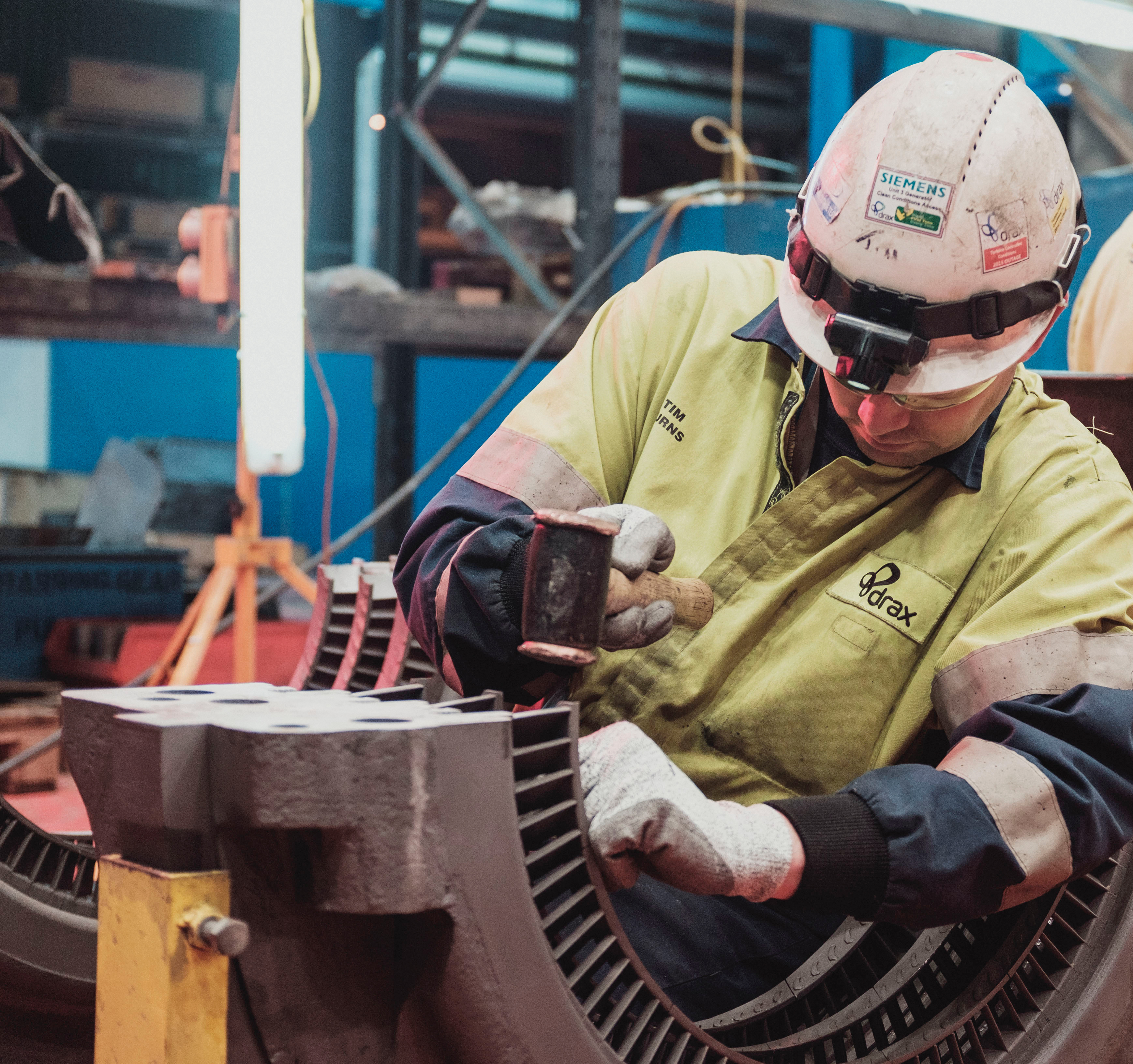
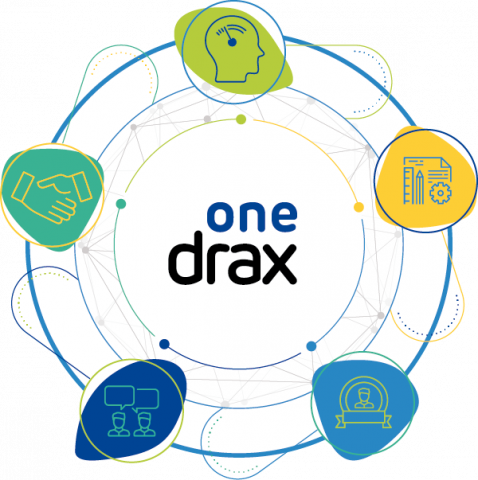 We launched the five aspects of the strategy: my career, my performance, our behaviours, our reward, my recognition. In 2018, we will focus on all of these aspects and, in particular, our reward, my recognition and my career.
We launched the five aspects of the strategy: my career, my performance, our behaviours, our reward, my recognition. In 2018, we will focus on all of these aspects and, in particular, our reward, my recognition and my career.
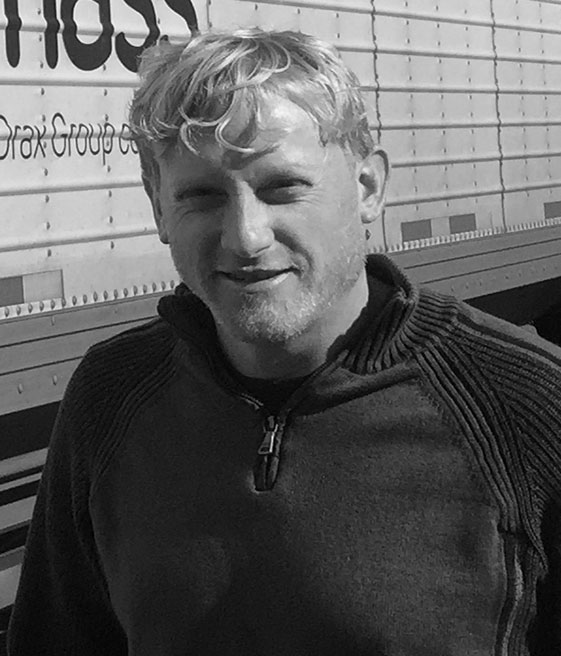 “I was a student in the Process Operations Technology programme at Southwest Mississippi Community College and Drax came to the school to recruit new grads. They were introducing a new technology I’d never heard of and it sparked my interest.
“I was a student in the Process Operations Technology programme at Southwest Mississippi Community College and Drax came to the school to recruit new grads. They were introducing a new technology I’d never heard of and it sparked my interest.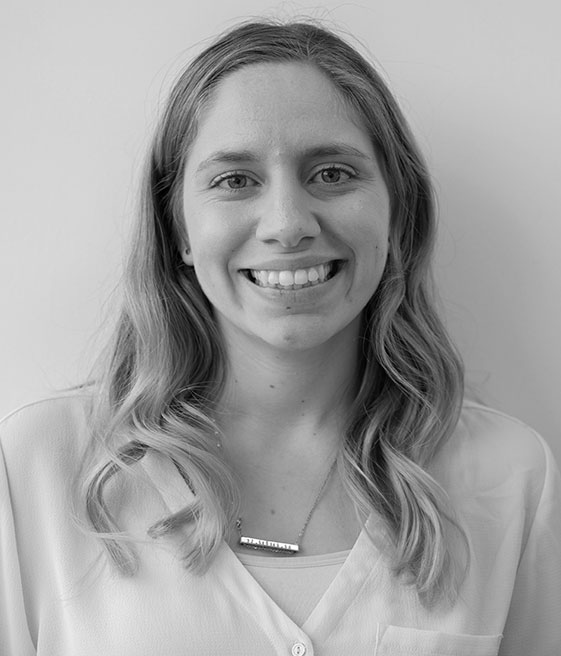 “I’ve always wanted to work in renewable energy and I studied life cycle analysis during my degree. I started looking for jobs in renewable energy, and as the biggest generator of renewable energy in the UK, Drax was an obvious choice!
“I’ve always wanted to work in renewable energy and I studied life cycle analysis during my degree. I started looking for jobs in renewable energy, and as the biggest generator of renewable energy in the UK, Drax was an obvious choice!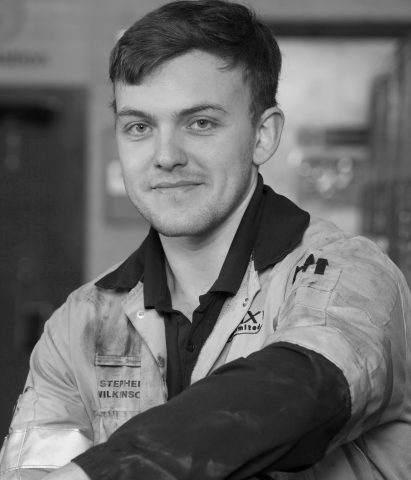 “I’ve always enjoyed building and fixing things. Given that my father and both grandfathers were in engineering – one of them even working at Drax
“I’ve always enjoyed building and fixing things. Given that my father and both grandfathers were in engineering – one of them even working at Drax 